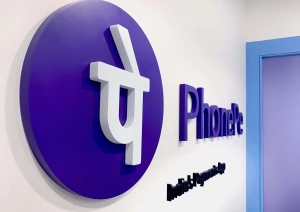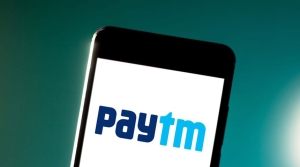India Payments Research
Why PhonePe is thriving
There is usually good reason to be skeptical these days about a loss-making fintech with a sky-high valuation, but India’s PhonePe – valued at US$12 billion – could be an exception to the rule. The company has fought its way to the top of the subcontinent’s massive UPI payments rail, edging out Google Pay and Paytm, is gradually building out a comprehensive digital financial services ecosystem and continues to raise eyewatering sums from investors at a time when the easy money no longer flows.
Has Paytm found the secret sauce?
Paytm seems to have found the secret sauce at last. After years of rolling out seemingly unrelated digital financial services, the Indian fintech giant is instead focusing on lending and seeing its revenue rise accordingly. In the first quarter of the 2024 fiscal year, Paytm’s revenue rose 39% year-on-year to 23.42 billion Indian rupees (US$286 million). The company reported an operating profit for a third straight quarter, despite higher employee expenses and no government incentives, while its net loss narrowed to 3.57 billion rupees.
Why credit card adoption is rising in India
In recent years, the biggest credit story in India has been buy now, pay later, sometimes abbreviated as BNPL. Tremendous demand for credit has driven the BNPL boom in the subcontinent, but tighter regulation and slower growth are both now inevitable. As BNPL slows in India, there is an opportunity for the overlooked – but better regulated and steadily growing – credit card segment to build market share. To be sure, credit cards remain more of a premium product in India now than BNPL and the market is significantly smaller than for installment payments. Still, it is not small given India’s overall market size.
Why is Paytm’s stock up 67% this year?
Patience is a virtue, and good things come to those who wait? Or so it seems in the case of Paytm, India’s most prominent fintech, once best known for looking like yet another questionable bet by Masayoshi Son, but now reminding us he knows how to pick winners after all. Paytm stumbled out of the gates of its November 2021 IPO, but since then has gradually improved its core metrics and has had a pretty good 2023. The company’s stock is up 67% this year; it has a booming lending business and may be profitable sooner than expected.
PhonePe raises another US$100 million
Raising money is not nearly as easy it used to be for fintechs, but that has not stopped PhonePe. India’s Walmart-owned payments fintech giant just raised another US$100 million from private equity firm General Atlantic as it races towards a US$1 billion fundraising goal. PhonePe is arguably the most prominent Indian fintech unicorn that has yet go public, with a valuation of US$12 billion, massive transaction volume and a commanding presence on the ubiquitous United Payments Interface (UPI) payments rail.
Is the UPI real-time payments system ready to go global?
It is no exaggeration to say that India’s United Payments Interface (UPI) real-time payments system has been a game changer for the subcontinent. In a nutshell, UPI has transformed how Indians make payments, allowing them for the first time to easily transfer money instantly from one bank account to another: from a customer to a business, or between individuals.
In the roughly seven years since it was launched, UPI has accrued 260 million users in a population of 1.4 billion and been a decisive factor in India’s embrace of cashless payments thanks to its ease of use and interoperability. Mastercard’s 2022 New Payments Index found that Indians are the most willing of any consumers in the Asia-Pacific region to use emerging cashless payment methods with 93% likely to have made such a payment in the past year.
While many fintech success stories have come entirely from the private sector, state-backed UPI shows that public-private digital financial inclusion efforts can bear fruit when they are implemented well. Having achieved dominance at home, UPI now has set its sights on global expansion.
The question is: Can what works for digital payments in India work globally?
PhonePe defies fintech funding slump
India’s most valuable fintech startup has been on a roll, all things considered. Despite an increasingly challenging environment for funding, e-payments firm PhonePe is continuing to raise the enormous amounts of money, most recently US$200 million from its key backer Walmart and before that US$100 million Ribbit Capital, TVS Capital Funds (TCF) and Tiger Global. Valued at US$12 billion, PhonePe has projected a revenue of US$325 million for the calendar year 2022 and US$504 million for 2023, according to a valuation report prepared by KPMG and filed by PhonePe.
UPI sets its sights on international expansion
Can what works for digital payments in India work globally? That is the most pressing question today for the National Payment Corporation of India’s (NPCI) United Payment Interface (UPI) payment rail, the most successful initiative of its kind. While many fintech success stories have come entirely from the private sector, UPI shows that public-private digital financial inclusion efforts can bear fruit when they are implemented well. Having achieved dominance domestically, UPI is now keen to expand overseas.
How did PhonePe achieve a US$12 billion valuation?
Walmart-backed PhonePe, one of the biggest players in India’s payments market, is now one of the subcontinent’s most valuable private fintech firms with a valuation of US$12 billion following a mammoth US$350 million capital injection. PhonePe’s valuation more than doubled from US$5.5 billion at the end of its previous funding round in December 2020.
UPI transactions cap is not a sure thing
There is a lot of speculation right now about whether India will make good on its promise to cap third-party payment providers’ market share on the United Payments Interface (UPI) at 30%. We argued when the idea was first proposed several years ago that it did not make a lot of sense and would be hard to implement. Now, with December 2022 deadline looming, the National Payments Corporation of India (NPCI), which operates UPI, and the Reserve Bank of India (RBI) are considering extending the deadline.
More...
Has Paytm turned a corner?
Paytm’s path to profitability has always been a bit convoluted given the company’s labyrinthine business lines and its determination to compete in so many retail segments that require regular subsidizing of customers. That said, it enjoys a scale that few – if any – of its competitors can boast, the backing of some very deep-pocketed investors and the ability to raise cash cheaply on India’s stock exchange.
India’s Razorpay thrives as an outlier
Razorpay is the rare fintech unicorn with discipline and focus, as well as a sky-high valuation. Last valued at US$7.5 billion in December 2021, the Bengaluru-based payments gateway is notable for growing through strategic acquisitions and sticking to its B2B focus despite pressure to foray into retail. It is now poised to expand beyond its home market into Southeast Asia.
Can UPI thrive internationally?
The National Payment Corporation of India’s (NPCI) United Payment Interface (UPI) payment rail is the most successful initiative of its kind globally, proof that government-led digital financial inclusion efforts can bear fruit when they are implemented well. In the second quarter of the year, UPI recorded over 17.4 billion transactions in volume and Rs 30.4 trillion in terms of value, up 118% and 98% respectively over the same period a year ago. While India remains UPI’s paramount market for now, the company is increasingly targeting global expansion.
Are credit cards ascendant in India?
For the past few years, the biggest credit story in India has been buy now, pay later (BNPL). Tremendous demand for credit has driven the BNPL boom in the subcontinent, but tighter regulation and slower growth are both now inevitable. After all, you cannot act as a credit provider without being regulated like one forever. As BNPL slows down in India, there may be an opportunity for the overlooked – but better regulated and steadily growing – credit card segment to build market share.














